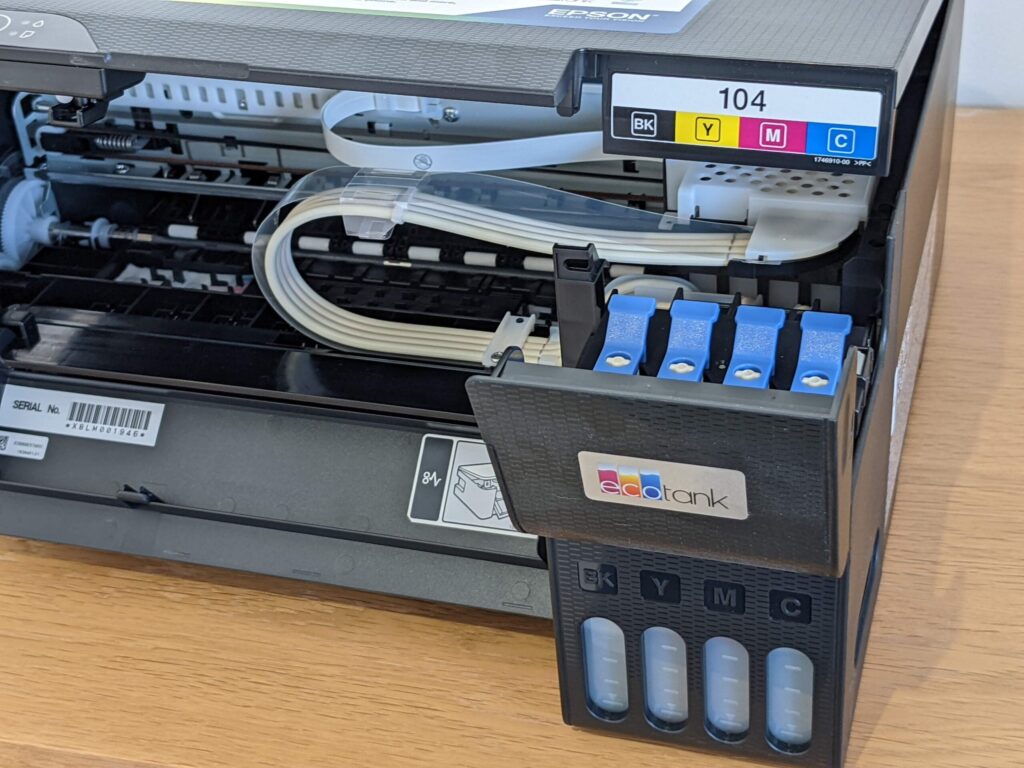💡 DIY Computer Fixes?
Grab my easy step-by-step guide and keep your computer running like new.
Epson Printer
Epson boobytrapped its printers
“For your protection.”

“Innovation” has become a curse word, thanks to…innovation. Some of the world’s most imaginative, best-funded sociopaths have spent decades innovating ways to fuck you over. While the whole tech sector likes to get in on this game, no one “innovates” like inkjet printer companies.
Printer companies are true fuckery pioneers: the tactical innovations they’ve developed in the war on their customers would make Otto von Bismarck blush.
Selling printers with half-empty ink-cartridges:
Requiring useless, mandatory “calibration tests” that use up all your ink:
Or just having printers reject partially full cartridges as empty.
When you’re at war with your customers, you have to anticipate that your rivals will join your customers’ side — not because other businesses are paragons of consumer protection, but because it’s profitable. So printer companies tried to use copyright to block ink refillers:
When that got stale, they figured out how to put DRM in paper, too:
How does that work? Well, Epson says that it designs its printers with little internal sponges that soak up excess ink and when they become saturated, that ink might run out of the bottom of your printer and stain your furniture.
But that would deny Epson a new printer sale, and divert your perfectly good printer from joining the mountains of e-waste that are poisoning the global south, and we couldn’t have that.
So they’ve rigged their printers’ software so that even if you replace the sponges, the printer can still refuse to print. Replacing or resetting this software requires that you bypass the DRM designed to prevent this, and providing a DRM-defeat tool is a felony punishable by a 5-year sentence and a $500k fine under Section 1201 of the DMCA.
But maybe this is a violation of consumer protection laws. Aaron Perzanowski thinks so, and he’s a law professor. If the FTC were to go after Epson on this, they would be genuine American heroes, celebrated as true guardians of the public interest.
Previously, the FTC resolved this kind of self-bricking fraud by ordering companies to disclose the practice at the time of purchase. This is not good enough.
A real remedy — one that would prevent this conduct in future — would be a ban on self-bricking devices altogether, along with immunity from civil and criminal liability for companies and individuals who design defeat devices to unbrick illegally bricked gadgets, under patent, copyright, contract, and all other legal theories.
EFF/Hugh D’Andrade
Cory Doctorow (craphound.com) is a science fiction author, activist, and blogger. He has a podcast, a newsletter, a Twitter feed, a Mastodon feed, and a Tumblr feed. He was born in Canada, became a British citizen and now lives in Burbank, California. His latest nonfiction book is How to Destroy Surveillance Capitalism. His latest novel for adults is Attack Surface. His latest short story collection is Radicalized. His latest picture book is Poesy the Monster Slayer. His latest YA novel is Pirate Cinema. His latest graphic novel is In Real Life. His forthcoming books include The Shakedown (with Rebecca Giblin), a book about artistic labor market and excessive buyer power; Red Team Blues, a noir thriller about cryptocurrency, corruption and money-laundering (Tor, 2023); and The Lost Cause, a utopian post-GND novel about truth and reconciliation with white nationalist militias (Tor, 2023).


